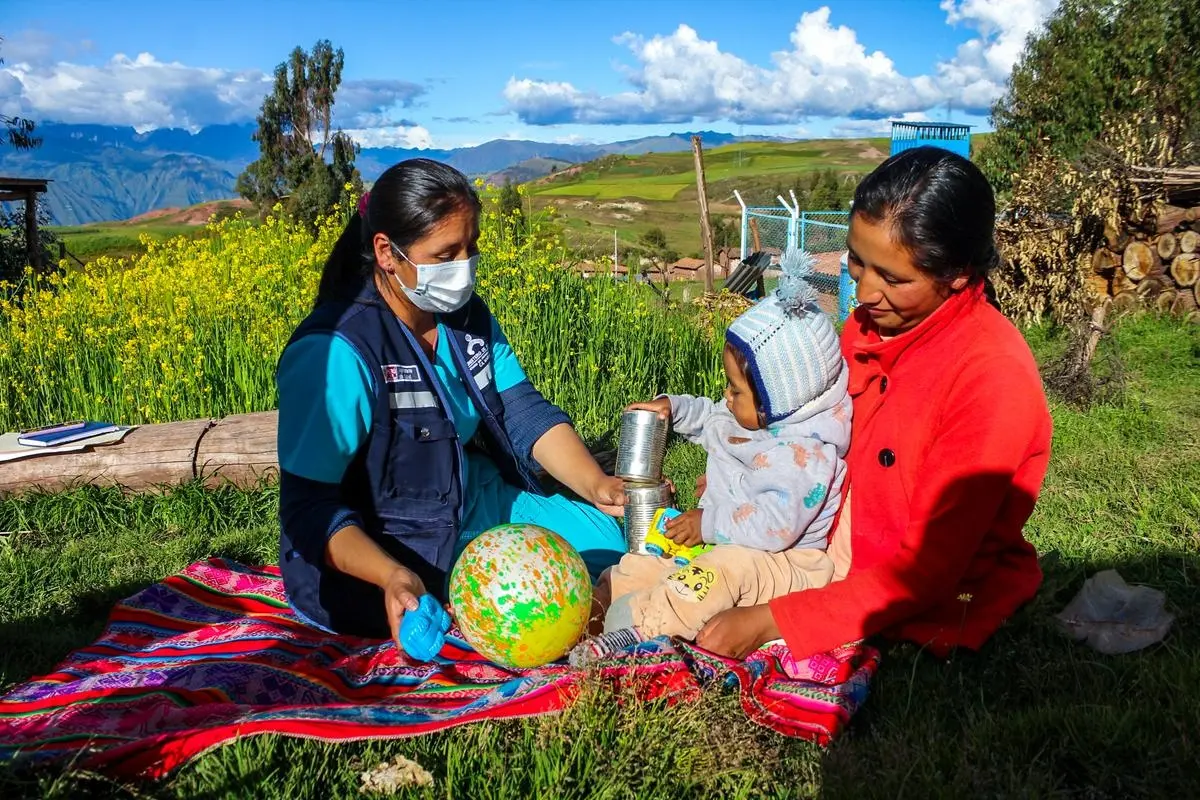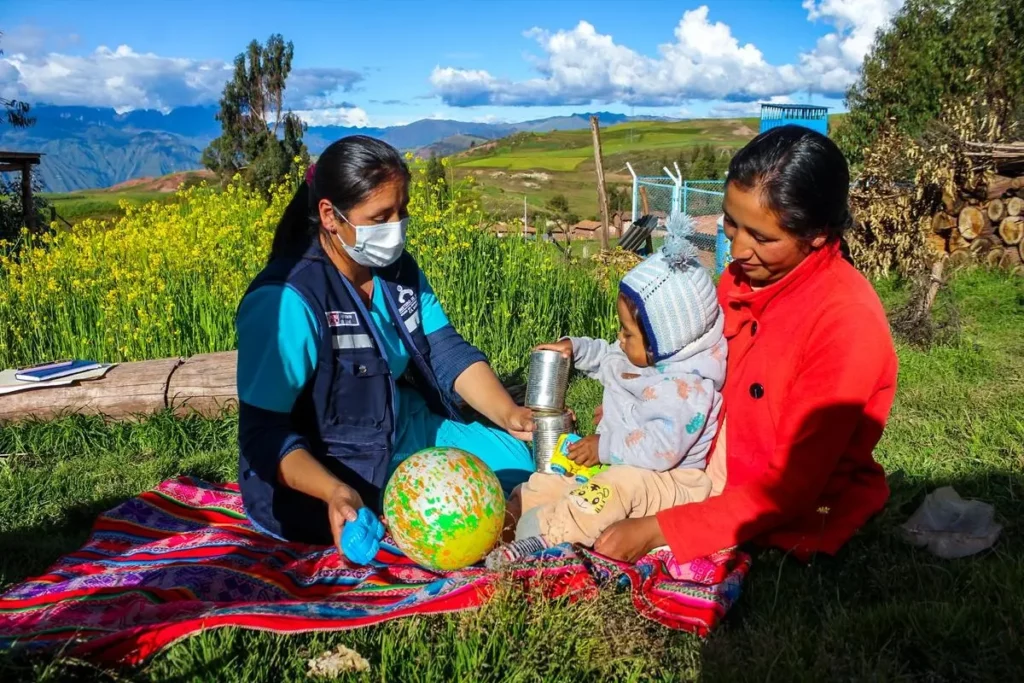7 Ways Community Health Workers Support Patients

Community-level workers are trusted neighbours, advocates
Posted on April 17, 2023

In Haiti, they are known as accompagnateurs. In Peru, they are agentes comunitarios. In Mexico, they are acompañantes. Around the world, they are known as community health workers, and they form the backbone of Partners In Health.
PIH has more than 10,000 community health workers on staff in the 11 countries where it works, with nearly 6,000 in Rwanda alone. Their day-to-day tasks vary, but their mission is the same: accompany patients on their health journeys and beyond.
That accompaniment happens in homes and in hospitals, in community centers and in clinics—wherever patients are, community health workers are by their side, or just a phone call away. As familiar faces, and even neighbours, hired directly from the communities where they work, community health workers care for patients in their houses and neighbourhoods and bring linguistic and cultural understanding, cultivating deep bonds and trust.
Here are seven ways CHWs support patients:
1. Accompanying patients to the hospital or clinic
Many patients live in rural communities far from the nearest clinic or hospital—a journey that requires several hours of travel on dirt or poorly paved roads. Community health workers often accompany patients on this journey, helping them safely travel to their medical appointments and navigate the health care system.
2. Visiting patients at home
Each year, community health workers provide more than 800,000 home visits to patients and their families. During these house calls, community health workers remind patients to take their medication, monitor signs like blood sugar levels, and screen for early signs and symptoms of diseases.
3. Helping patients access medication
Finding the nearest pharmacy stocked with their medications is often a challenge for PIH’s patients. Many would have to travel for hours to another town, which would mean taking time off work, losing income, and spending money on bus fares. To address this, community health workers routinely deliver medication to patients at home. This service removes barriers to care and also helps patients take their medications correctly and on time.
4. Helping patients access essential resources
PIH understands it takes more than medicine to make patients well; they must also have access to food, housing, and other essentials often called social support. Community health workers help patients access these essential resources, from food boxes to bus fares to hotel vouchers. Community health workers have also supported patients as they navigate court cases, immigration paperwork, or government benefits programs.
5. Offering mental and emotional support
From unexpected diagnoses to high-risk surgeries, health care can cause mental and emotional distress for patients. Community health workers provide crucial day-to-day support, checking in with patients at home and over the phone. Some specialize in mental health and are trained to provide screenings for depression and anxiety, working closely with psychologists.
6. Educating patients about health issues and how to access care
Many diseases are preventable when detected in time—but early detection is a challenge in communities that lack access to resources, including health education. In communities where diseases like tuberculosis are prevalent, community health workers knock on doors, offer free screenings, and organize health campaigns and workshops to educate the public about health conditions, including testing, treatment, and care.
7. Advocating for patients in the health care system
Patients interact with many staff at PIH sites, from doctors to drivers. But community health workers often spend the most time with them and get to know them on the most personal level. That makes community health workers key advocates for patients at all levels of care, from relaying patient updates and concerns to doctors to translating for patients to providing guidance to clinical staff on patient care.
Originally published on pih.org



